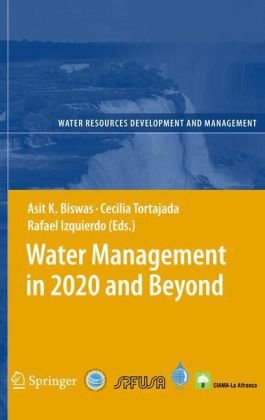

Most ebook files are in PDF format, so you can easily read them using various software such as Foxit Reader or directly on the Google Chrome browser.
Some ebook files are released by publishers in other formats such as .awz, .mobi, .epub, .fb2, etc. You may need to install specific software to read these formats on mobile/PC, such as Calibre.
Please read the tutorial at this link: https://ebookbell.com/faq
We offer FREE conversion to the popular formats you request; however, this may take some time. Therefore, right after payment, please email us, and we will try to provide the service as quickly as possible.
For some exceptional file formats or broken links (if any), please refrain from opening any disputes. Instead, email us first, and we will try to assist within a maximum of 6 hours.
EbookBell Team

4.7
16 reviewsWater is intertwined in the daily life of humans in countless ways. The importance of water as a driver for health, food security, and quality of life and as a pillar for economic development is unique. As water affects human lives, the mankind also effects the hydrological cycle, in all dimensions from the local to the global scale. Food production accounts for 90% of water use in developing countries. Hydropower production evokes emotions; yet sustainable energy production is among cornerstones of economic development. The damages caused by floods and droughts are escalating all over the world. The human impacts on ecosystems are increasing as well. Water is largely a political good since a bulk of the mankind lives in river basins shared by two or more nations.
These complexities are approached in the book in depth. The analyses include consideration of how developments in seemingly unrelated processes and sectors such as globalisation, free trade, energy, security, information and communication revolutions, health-related issues such as HIV/AIDS, as well as emerging developments in sectors that are linked more conventionally to water, such as population growth, urbanisation, technological development, agriculture, infrastructure, energy, management of water quality and ecosystem health, are likely to affect water management in the future. For the first time, a pragmatic attempt is make to define a realistic framework for water management in 2020 with leading experts from different parts of the world as well as different disciplines.